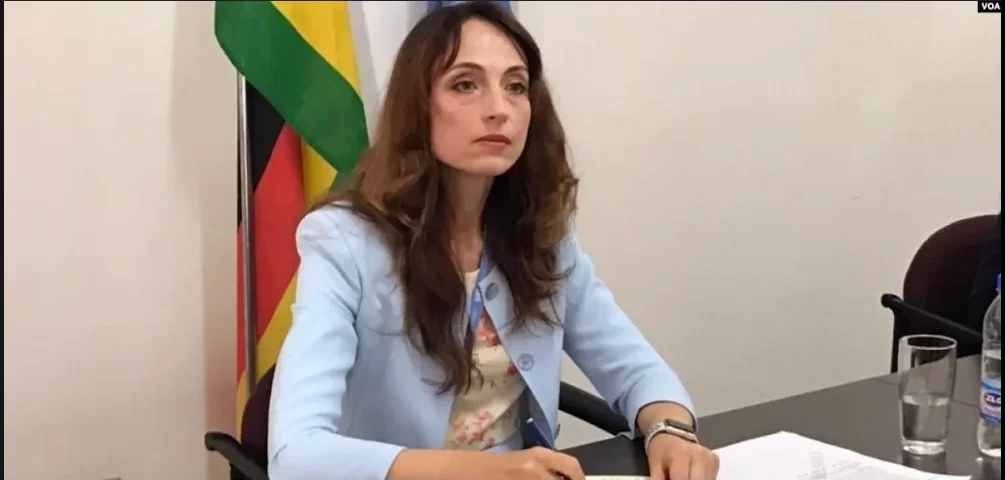by Oleen Ndori, published on ZBC News, September 9, 2022
The United Nations Special Rapporteur Alena Douhan has recommended the lifting of the unilateral sanctions imposed on Zimbabwe in line with the principles of international law.
Between the 18th and 28th of October last year, United Nations Special Rapporteur, Dr Alena Douhan embarked on a 10-day fact finding mission on the impact of illegal sanctions imposed on Zimbabwe by the West.
During the course of her visit, she engaged various stakeholders in different socio-economic sectors culminating in a report which urges the United States to cease the state of national emergency regarding Zimbabwe, which is not in accordance with the norms of the International Covenant on Civil and Political Rights.
The United Nations Special Rapporteur also called for the US national legislation to be aligned to international law, including human rights law, refugee law and the law of international responsibility.
She further called for meaningful and structured political dialogue on human rights, good governance and the rule of law with a view to lifting all primary and secondary sanctions imposed on legal and natural persons in Zimbabwe.
In reaching conclusions and recommendation, Dr Douhan throughout the report noted with concern negative effects of the sanctions on the general macro-economic environment of Zimbabwe, impact on the humanitarian situation, access to education, health, water and sanitation.
She also noted the negative effects of the illegal embargo on critical infrastructure in transport, energy, climate change response strategies and the continued loss of qualified personnel.
According to the report,
“international funding support and credit lines have been generally limited to critical humanitarian concerns, such as health epidemics or weather-related disasters, while development projects are generally given lesser consideration.
Twelve development projects that were approved for implementation via United Nations institutions during the period 2016–2021 have reportedly been cancelled because of the impossibility of attracting donor support due to the fear of sanctions.”
The Special Rapporteur further stresses that
“the state of national emergency announced by the Government of the United States on the 7th of March 2003 in its Executive Order 13288 as the ground for introducing sanctions against Zimbabwe does not correspond to the requirements of article 4 of the International Covenant on Civil and Political Rights.
This includes the existence of a threat to the life of the nation, the limiting of measures to the exigencies of the situation, a limited duration, and the absence of discrimination, as referred to in the communication of human rights experts of 29 January 2021.”
It further
“recalls that targeted sanctions cannot, in practice, be isolated from the negative consequences on Zimbabweans of secondary sanctions, civil and criminal penalties for circumvention of sanctions regimes, de-risking policies and over compliance.”
Zimbabwe has been under sanctions for the past two decades with the illegal embargo slowing down the country’s economic progress.
